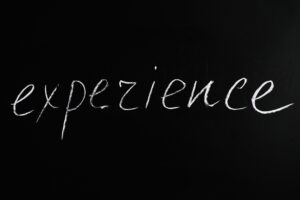In today’s fast-paced world, where technology dominates our lives, the importance of cultivating a reading habit cannot be overstated. Reading is not just a hobby; it is a transformative activity that enriches our minds, broadens our perspectives, and enhances our overall well-being. In this article, we will explore the best reasons why having a reading habit is crucial for personal growth, knowledge acquisition, and intellectual stimulation.
Expansion of Knowledge:
Reading opens doors to a vast realm of knowledge. Through books, we can delve into different subjects, explore diverse cultures, and learn from the wisdom of great thinkers throughout history. Each book has the potential to expand our knowledge base and provide valuable insights. Non-fiction books offer factual information on a wide range of topics, from science and history to psychology and personal development. Fiction books, on the other hand, transport us to imaginary worlds, introduce us to complex characters, and explore the depths of the human experience. By reading, we gain a deeper understanding of the world around us and acquire knowledge that enriches our lives.

Enhancement of Vocabulary and Language Skills:
One of the most evident benefits of reading is the improvement of vocabulary and language skills. Regular reading exposes us to a wide range of words, phrases, and sentence structures, helping us enhance our vocabulary and develop a more nuanced understanding of language. Whether we are reading classic literature or contemporary novels, each book offers a treasure trove of language that expands our linguistic repertoire. As our vocabulary grows, we become more confident in expressing ourselves and communicating effectively. Moreover, reading exposes us to different writing styles and narrative techniques, which further enhances our language skills. We learn how to craft compelling sentences, use figurative language, and convey our thoughts with clarity and precision.
Development of Critical Thinking :
Reading fosters critical thinking skills by presenting various perspectives, arguments, and ideas. Engaging with different narratives and thought-provoking content encourages us to analyze, evaluate, and form our own opinions. Through reading, we develop the ability to think critically, challenge assumptions, and engage in intellectual discourse. When we encounter different viewpoints in books, we learn to question and examine them from multiple angles. This helps us develop a more well-rounded perspective on various issues. Critical thinking skills acquired through reading extend beyond the pages of books and into our daily lives. We become better equipped to assess information, make informed decisions, and navigate the complexities of the world.

Empathy and Emotional Intelligence :
Literature, particularly fiction, allows us to step into the shoes of different characters, experiencing their joys, sorrows, and struggles. This immersive experience cultivates empathy and emotional intelligence, as we develop a deeper understanding of human emotions, motivations, and relationships. By reading about diverse characters and their unique experiences, we broaden our perspective on the human condition. We learn to empathize with others and appreciate the complexities of their lives. This enhanced empathy translates into improved interpersonal skills, as we become more attuned to the emotions and needs of those around us. Additionally, reading about characters from different cultural backgrounds or time periods helps us appreciate the diversity and richness of the human experience.
Stress Reduction and Mental Well-being :
In the fast-paced and stressful world we live in, reading offers a peaceful escape and a source of relaxation. It provides a much-needed break from the constant stimulation of screens and technology. Engaging with a good book allows us to unwind, reduce stress, and promote mental well-being. The act of reading has been shown to lower heart rate, reduce anxiety, and improve overall cognitive function. When we immerse ourselves in a captivating story or immerse ourselves in a thought-provoking non-fiction book, we temporarily disconnect from our worries and immerse ourselves in the present moment. The calm and focused state that reading induces can help alleviate stress and contribute to our overall mental health.

Imagination and Creativity :
Reading fuels our imagination and stimulates our creativity. Books transport us to different worlds, allowing our minds to wander, envision, and create. By immersing ourselves in the narratives and vivid descriptions of books, we enhance our imaginative abilities and cultivate a creative mindset that can be applied to various aspects of our lives. When we read, we visualize the settings, imagine the characters, and engage our senses in the story. This process of mental imagery exercises our imaginative muscles, fostering creativity and innovative thinking. Furthermore, reading exposes us to different writing styles, narrative structures, and storytelling techniques. We learn from the craftsmanship of authors and gain inspiration for our own creative pursuits.

Lifelong Learning :
A reading habit instills a lifelong love of learning. It encourages continuous personal growth and intellectual stimulation. Through reading, we can explore new subjects, delve into areas of interest, and stay updated on the latest research and developments. It provides an avenue for self-improvement, personal development, and lifelong learning. Whether we read non-fiction books to expand our knowledge in specific fields or explore diverse genres for entertainment and enrichment, the habit of reading keeps our minds active and engaged. It allows us to pursue our curiosity, satisfy our thirst for knowledge, and become lifelong learners. The learning opportunities offered by reading are endless, and the more we read, the more we discover the vastness of the world’s knowledge.

In a nutshell I would say, in a world saturated with digital distractions, cultivating a reading habit is more important than ever. The benefits of reading are far-reaching and extend beyond mere entertainment. It expands our knowledge, sharpens our minds, and nourishes our souls. By embracing a reading habit, we open ourselves up to a world of possibilities, personal growth, and intellectual enrichment. So, let us make reading a priority and experience the profound impact it can have on our lives.
Remember, the journey of a thousand miles begins with a single page.





